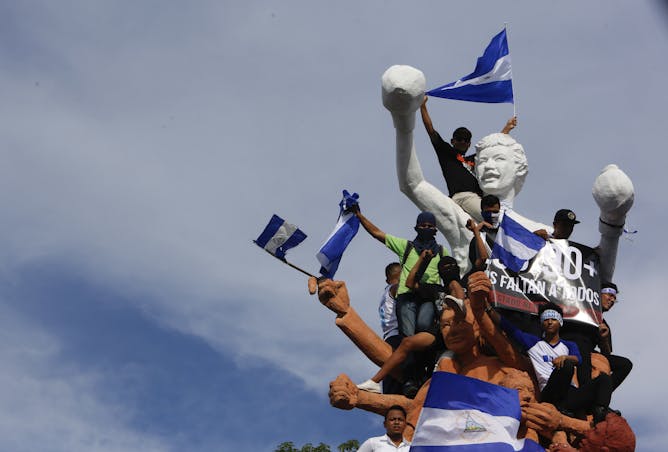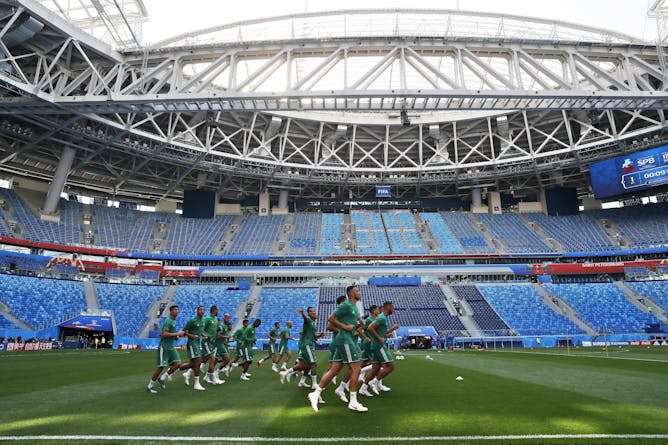|
After months of near-constant protest in Nicaragua, at least 215 people are dead, 1,000 are injured and President Daniel Ortega – an authoritarian leader who once seemed invincible – is on his last legs. Local and regional history suggests he may not survive this street uprising, reports Latin America scholar Benjamin Wadell from Managua.
FIFA rules allow only five African countries to qualify for the World Cup every four years. In 2018 this continent of 54 countries is being represented by Nigeria and Senegal from West Africa and the North African nations of Egypt, Morocco and Tunisia. Sport policy scholar Mahfoud Amara suggests the global competition offers an opportunity to think and talk more broadly about African unity. “For instance,” he asks, “is there a shared identity from the north to the south of the Sahara desert?”
|

Nicaragua, which overthrew its last violent dictator in 1979, is the only Latin American country since Cuba to stage a successful revolution.
AP Photo/Alfredo Zuniga
Benjamin Waddell, Centro de Investigación y Docencia Económicas
History shows that Latin American presidents usually don't last long after they use violence to repress mass protests. Is Nicaragua's Daniel Ortega the next to fall?
|

Morocco’s World Cup squad training in St.Petersburg, Russia.
Anatoly Maltsev/EPA
Mahfoud Amara, Qatar University
The football world cup offers a useful chance to consider the apparent division between North and sub-Saharan Africa.
|
Health + Medicine
|
-
Gabriela Blohm, University of Florida; John A. Lednicky, University of Florida
The collapse of Venezuela's public health system has terrible consequences inside the country, but it also is giving rise to mosquito-borne viruses that could spread to nearby countries.
|
|
Politics + Society
|
-
Luke Moffett, Queen's University Belfast
Decades after the end of a civil war that claimed hundreds of thousands of lives, the survivors' search for justice goes on.
|
|
Business + Economy
|
-
Richard Calland, University of Cape Town
The latest World Bank report on South Africa addresses solutions to the country's economic challenges.
|
|
Environment + Energy
|
-
Amélie Cabirol, University of Trento; Andrew Barron, Macquarie University
The work honey bees do is critical for our ecosystems, but it comes at a high personal cost.
|
|
Science + Technology
|
-
Stephen Schneider, University of Massachusetts Amherst
The tilt of Earth's axis as it orbits the sun results in the seasonal changes.
|
|